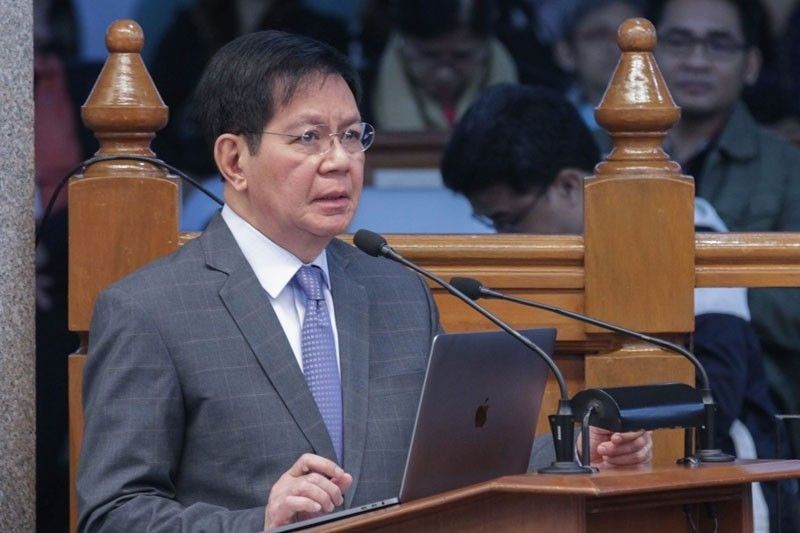Officials brainstorm to achieve herd immunity by yearend

MANILA, Philippines — To achieve herd immunity against COVID-19 by yearend, the government needs P110 billion to procure more vaccines until 2022, set up more inoculation centers and cut red tape in the Food and Drug Administration (FDA), a senator said yesterday.
Sen. Panfilo Lacson revealed these details about immediate actions the government including Congress should take following Thursday’s meeting with three of the Duterte administration’s pandemic response “czars.”
“Senate President Vicente Sotto III and I had a good meeting with the three czars of the government’s COVID response Thursday night to discuss red tape issues and the funding needs hounding the country’s fight against COVID,” he said.
Lacson was referring to their meeting with vaccination czar Carlito Galvez, testing czar Vince Dizon and contact tracing czar Benjamin Magalong. Sotto confirmed the meeting had taken place.
Health Secretary Francisco Duque III, who heads the Inter-Agency Task Force for the Management of Emerging Infectious Diseases (IATF), was not in the meeting.
Lacson said the three czars sought Congress’ immediate passage of the Bayanihan 3, the proposed third iteration of the emergency powers law that authorizes President Duterte to realign funds to include the allocation of P20 billion for this year’s vaccine purchases.
“I suggested to try first (P20 billion) to be realigned from the unused appropriations of several executive agencies as it is allowed under the Constitution as well as under the extended effectivity of the Bayanihan (2) law already passed,” he told reporters.
Bayanihan 2 (Republic Act 11494) has an effectivity that was extended until June 30 this year to complete its funded programs.
Lacson said the government also needs some P90 billion for the procurement of vaccines for 2022 and asked that it be included and itemized in the regular budget of the Department of Health.
Last year, vaccine allocation for this year’s General Appropriations Act was placed under the “Unprogrammed Fund” as what the Departments of Finance and of Budget and Management did.
Also, Lacson said Congress needs to amend certain laws – including the FDA Act – to cut red tape that is delaying the procurement and issuance of emergency use authorization (EUA) for vaccines.
“We agreed on a plan to resolve (red tape) quickly enough,” he said, citing as an example the FDA’s rule for pharmaceutical firms to submit at least 20 requirements when applying for an EUA.
“It takes forever for them to act in obvious violation of the ARTA (Anti-Red Tape Authority) regulations,” added the senator.
He said it only takes three days for the Indian government to issue an EUA, citing a statement from Philippine Ambassador to India Ramon Bagatsing Jr.
On contact tracing, Lacson said he would push for the insertion of a provision in the proposed Bayanihan 3 to suspend some provisions in the Data Privacy Act to hasten the process as suggested by Magalong.
He said Galvez and Dizon also informed them that the business sector has committed available spaces in malls and hotel ballrooms for some 5,000 vaccination centers, 1,200 of which are in the National Capital Region to hasten the administration of the vaccine.
Should enough doses arrive as scheduled, Lacson said vaccinations done round-the-clock would achieve the objective of inoculating some 58 million Filipinos by yearend.
“With a proper budget and lots of help from the business sector and LGUs, herd immunity may yet still be achieved. Cooperation is key,” Lacson said.
Galvez, who is also the National Task Force against COVID-19 chief implementer, underscored the need to enhance “unity of command and effort” of health care service providers in the country.
Addressing the joint hearing of the Senate committee on finance and health and demography, he said: “We have seen the vulnerability of the Filipino people and we have witnessed the dysfunctional gaps in our health care system during this pandemic.”
Galvez said the DOH “can only command until the regional level,” pointing out that “LGUs have full autonomy and responsibility for managing and implementing their own health programs and services.”
Although the DOH provides technical support to all health care facilities, the provincial governments are managing and operating primary and secondary hospital services, he said.
Likewise, municipal governments supervise primary health care services provided by rural health units and barangay health stations; while highly urbanized and independent cities provide both hospital and primary care services.
To address these challenges, Galvez proposed a number of key reforms in the Universal Healthcare Law such as the improvement in health care facilities; implementation of measures that will address the low number of health care workers in the country; need for greater strategic engagement with the private sector, as well as the expansion of DOH’s functions to improve delivery of health services.
- Latest
- Trending






























